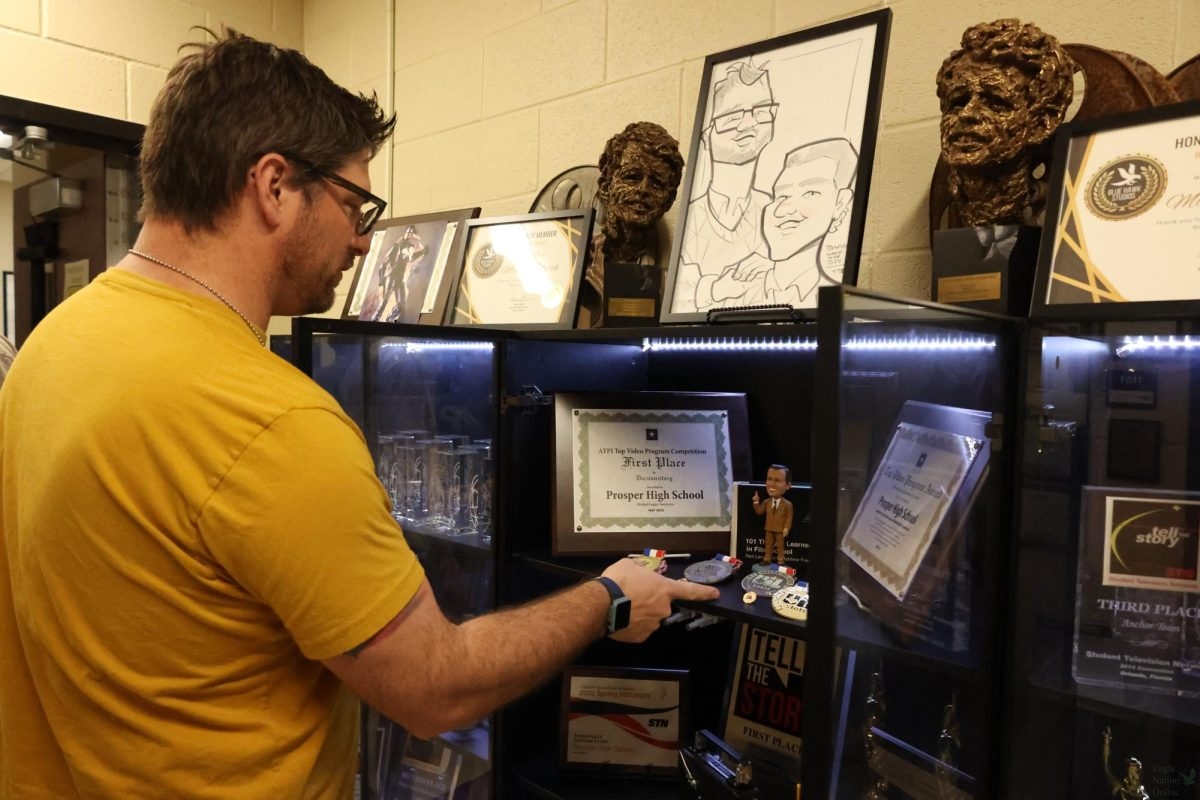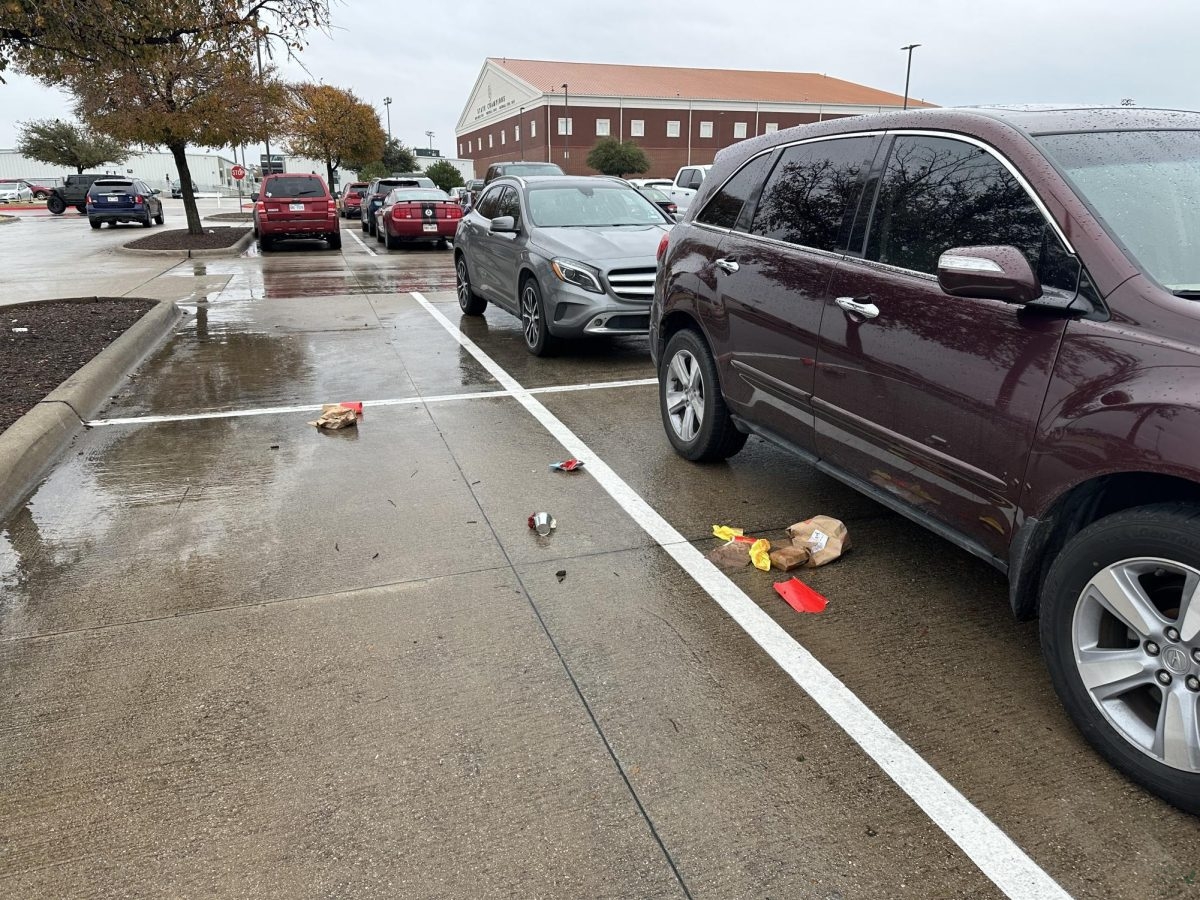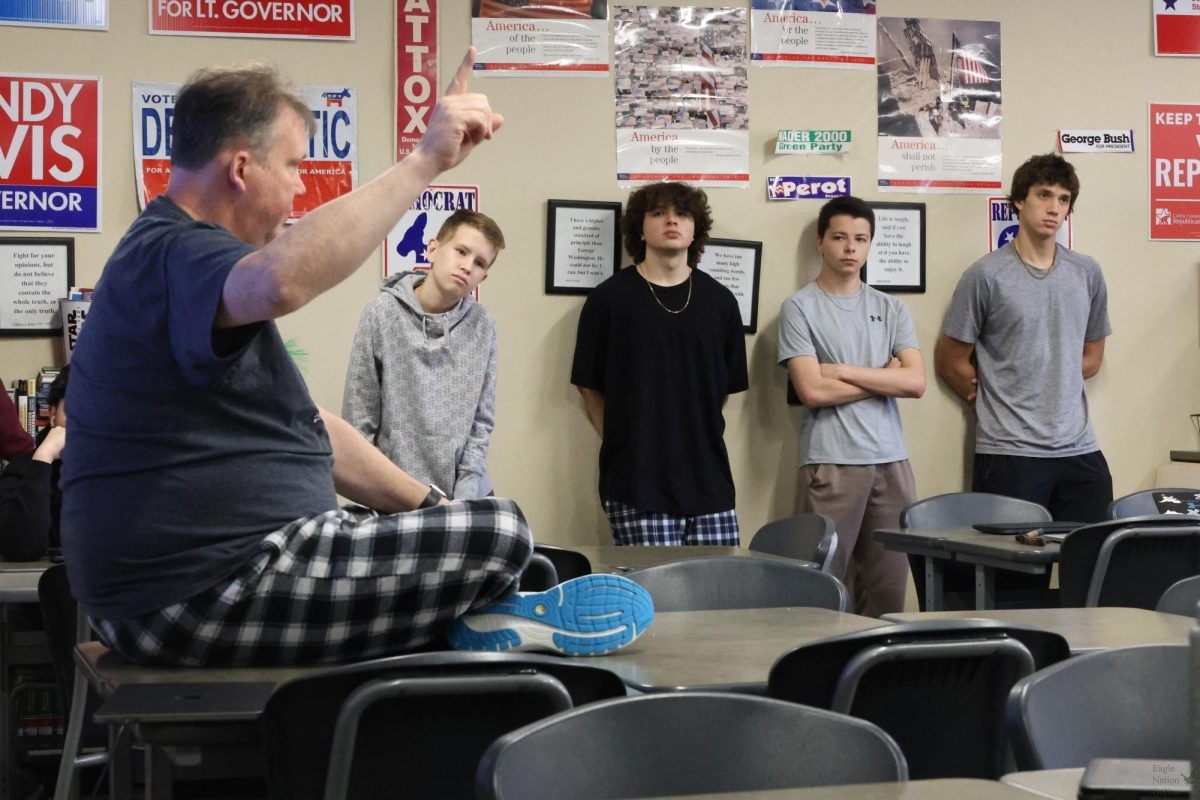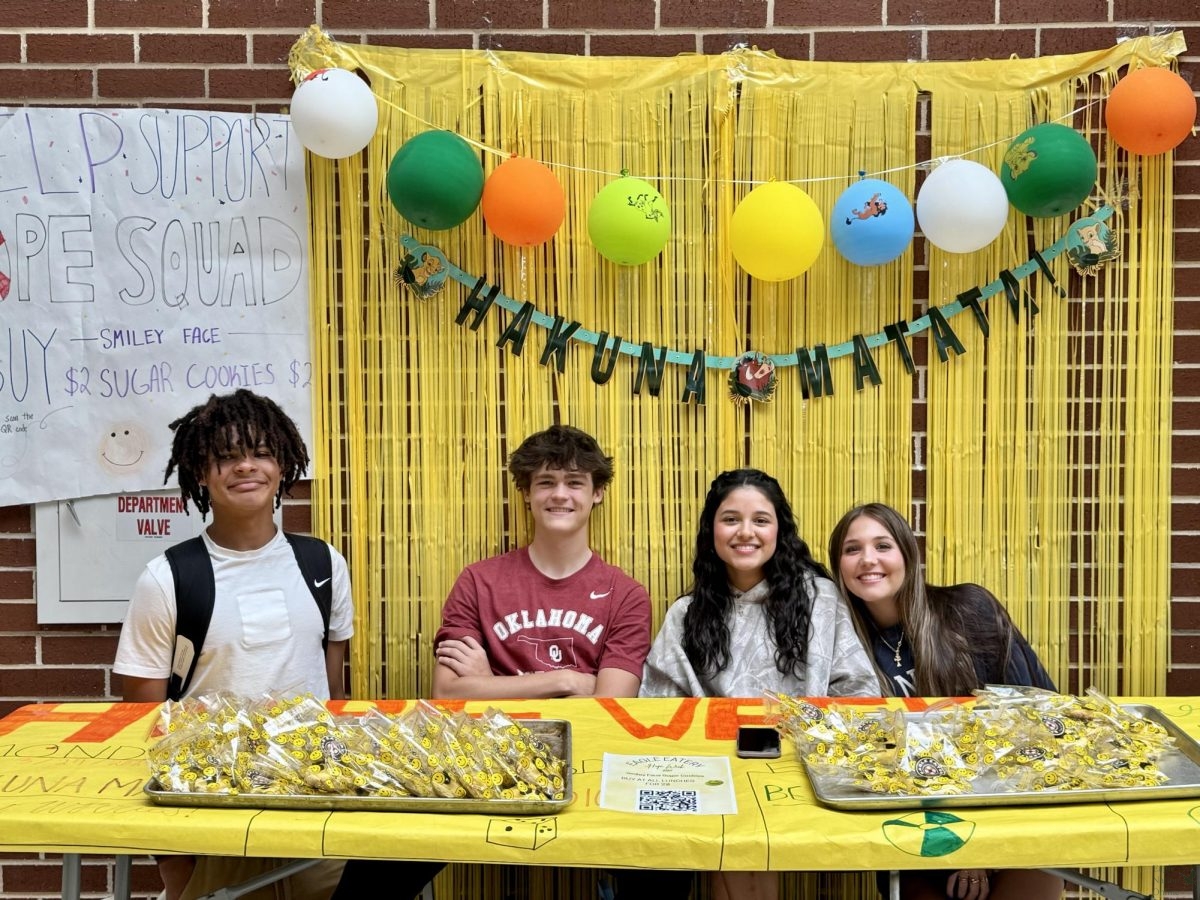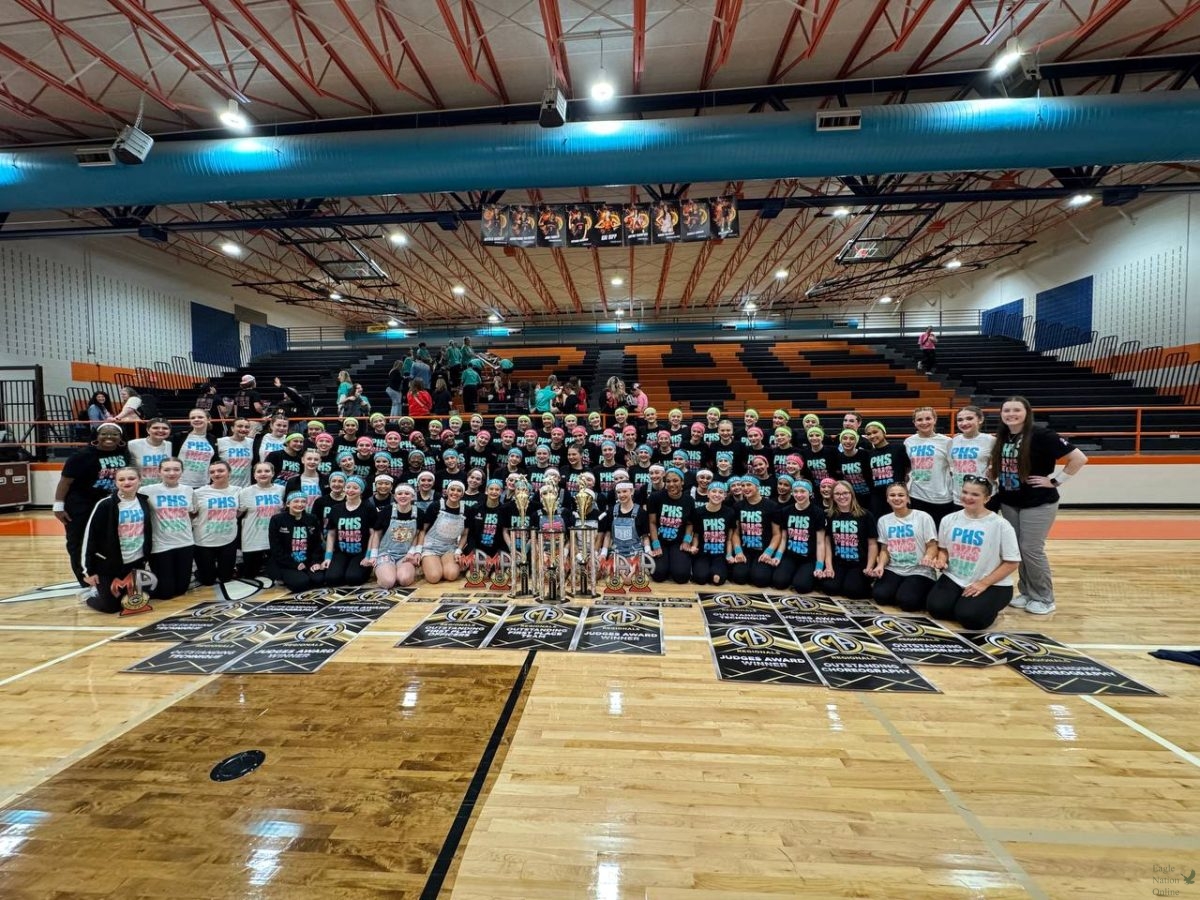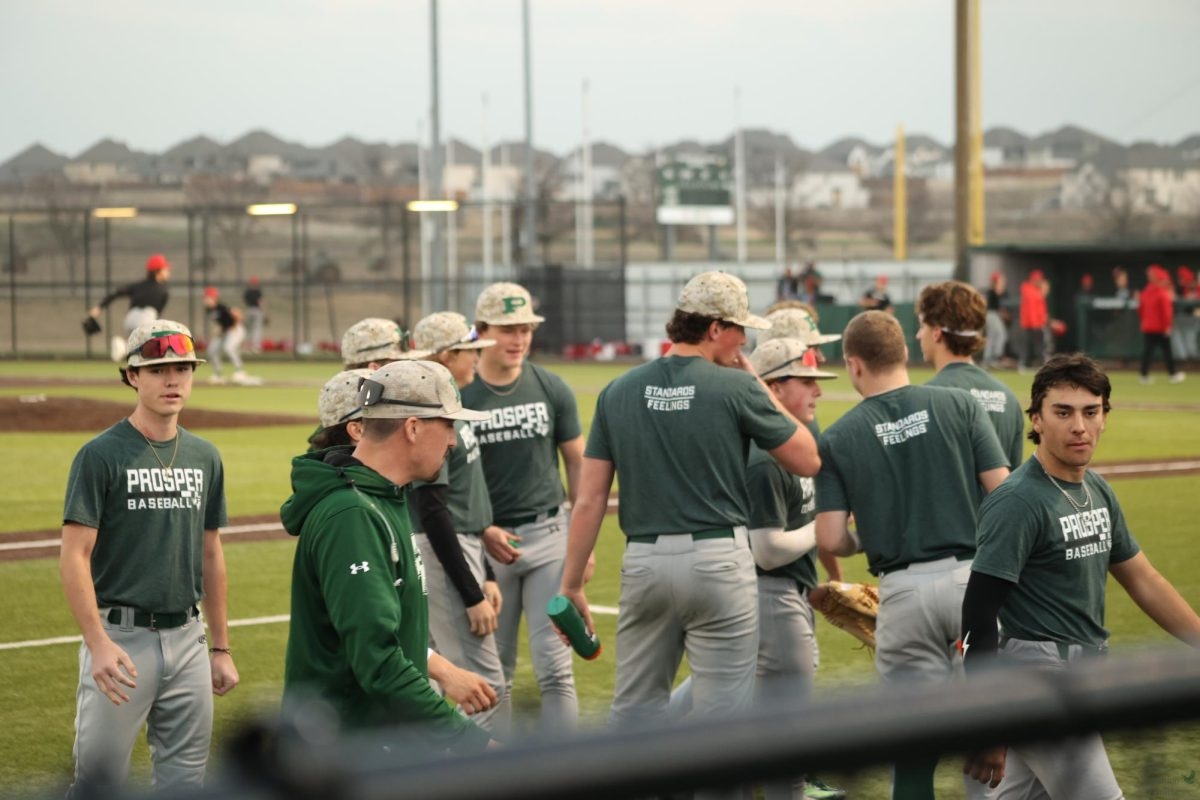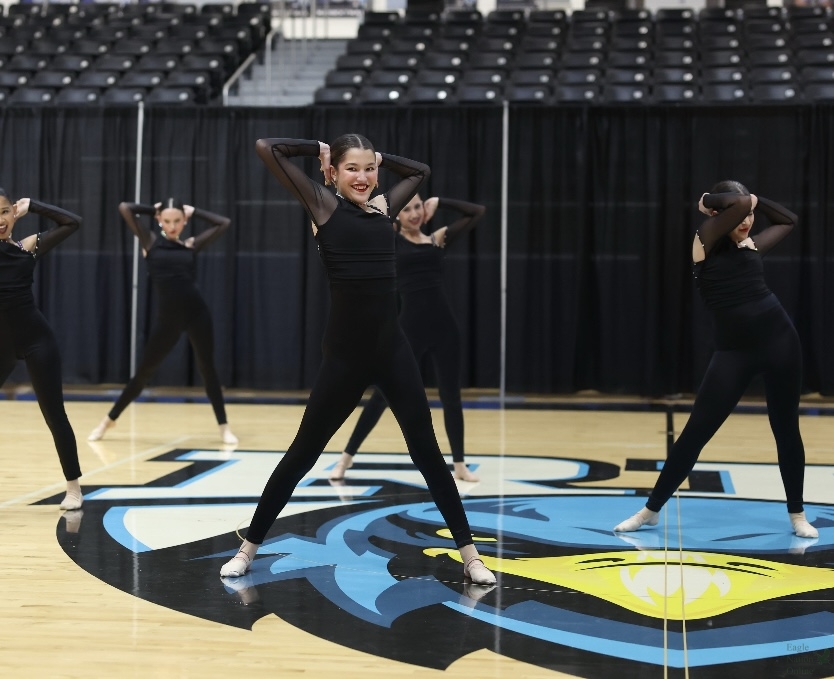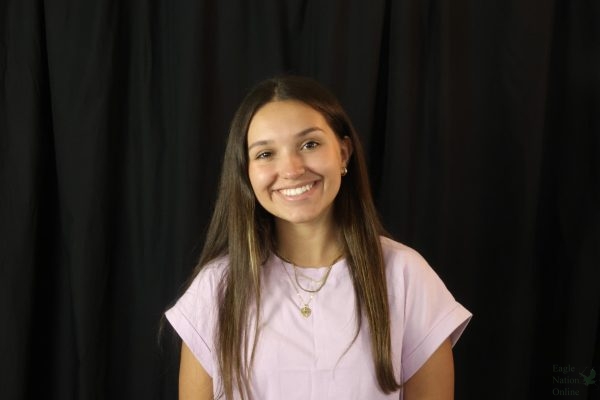Scripts ready, cameras set, and gear packed, the film students prepare for their annual trip to New York for the All-American High School Film Festival – which might be for the last time due to new travel policies implemented in the district.
Film adviser Michael Logan has taken the students to the All-American High School Film Festival for nine years. This event represents one of the largest student film festivals in the world. The students will leave Oct. 15 to head to New York City and will compete, film and attend workshops throughout the week.
“The students who go on the trip learn a lot about pre-production and the importance of preparing, and they bring those skills back and help ingrain that in the culture of my classroom with all of our future projects,” Logan said. “So, if we’re not able to travel, I think that will start to wane over the years.”
Logan has been working in the district for the last 10 years. He’s also been communicating with the district’s administration to make sure the film students can attend the festival for at least one more year. According to the new district travel guidelines, the film program will only be able to go on out-of-state trips, such as the All-American High School Film Festival, once every two to four years, depending on the classification of the competition. Both the district and CTE-section of the guidelines differentiate between the following travel designations: expected, extra, and exceptional.
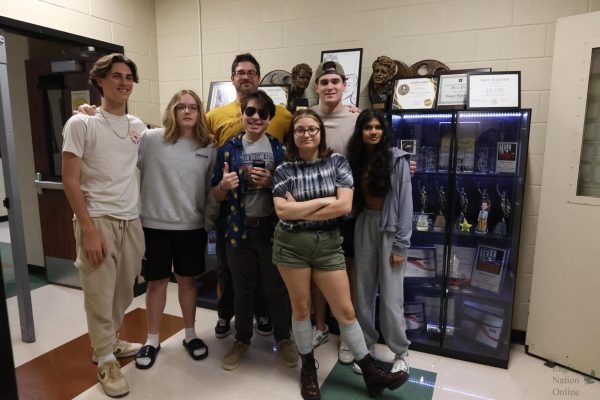
“So I have heard repeatedly when the kids get back from the trips, they say, ‘Mr. Logan, I had no idea how important it was to over-prepare and to think through all the scenarios and have backup plans,'” Logan said. “They say, ‘I have no idea how important pre -production was until we go and compete at a high level like this,’ and then they’re able to see the value of and the importance of thinking through all the possible scenarios and preparing for it. And then I see them after they go on that trip, integrating all the skills they learn into all their future projects, and just the entire production level goes up a step after that.”
The new travel policy was put in effect for all of the career and technical education courses, fine arts programs, and academic groups.
“I have been talking to administrators over the last year to try to advocate for my program, but I don’t feel like I have been listened to because they still made the policy,” Logan said. “They still enacted the policies, so it’s not like a ban outright, but based on the policies that they implemented, it will prevent all of our trips from happening.”
Logan said the students have been working since late summer to prepare for the film festival. They received the prompt in August, and they have worked on planning their project since then.
“They’ve (the film students) been writing scripts and pre-planning. Right now, you’ll see, you’ll hear them in there making the schedule,” Logan said. “We’re shooting at various locations throughout New York City. So, they have to plan the most efficient schedule to shoot here, and then here, and then here, and then take a lunch break, and then go. It takes a tremendous amount of planning.”
Here is how the CTE guidelines define the trips as well as their availability:
“There are three types of overnight travel: Expected – Events outlined in the CTE Expected Travel By Organization. Extra – Special overnight trips with embedded competition opportunities. These are limited to once every four years. Students are limited to missing a maximum of one day of instruction for these trips. Special considerations may be made in certain instances. Exceptional – Typically long distance, overnight trips where students have been invited or will be competing in an event that is exceptional in nature through pre qualifying events or invitation. Student groups are limited to one Extra out-of-state trip every four years and one Exceptional out-of-state trip every two years. These trips should not occur during the same school year. All trips require Director approval each time. *Extra and exceptional trips are not bound by the four/two year restrictions if 1) not district funded to any extent, and 2) no student/teacher instructional time or contract time for teachers is missed.”
With the new travel policies, the opportunity to attend the film festival every school year will be eliminated, according to Logan.
“This class definitely shows a lot of creativity, and I think that being taken away from you kind of sucks because I wish the administrators felt the same,” Logan said. “It takes away creativity and a lot of work, and last year, we went to New York and made a film. Then, we won UIL state last year with that film. So, even the travel opportunity and the kids making the film in New York helped our school and gave us UIL points, but that didn’t seem to be any kind of help for my case.”
Film student junior Dhruvi Tank said she advocates for the best for the film program and has been working alongside the other students to prepare for the festival next week.
“I’ve been in film for four to five years, and something I’ve always looked forward to is the All American, going to New York, being able to film and being part of the world’s largest film festival.”
Tank has been a part of the Eagle Production Group for three years. The students do raise their own funds and pay their own way for the trip each year.
“It’s really important to us, and it helps us understand how filmmaking is in the professional environment,” Tank said. “So, finding out that this is the only year that we will be able to go is really sad.”
Tank said this program has opened up a lot of opportunities for her and allowed her to pursue her passion for film.
“Since the more you go, the more experience you gain, the more opportunities you have and the more ideas you can have for the next year, it’s really saddening that this is the only year I can go, and we won’t be able to do it again,” Tank said. “And the thing about doing it multiple times is the first time you do it, you just kind of gain experience and how it is, and the year after that, you can, like, strategically plan a way to win.”
Tank works alongside film student junior Michael “Trip” Breslin, who said he is also saddened that this might be the last time they get to attend the All-American High School Film Festival.
“So, with the travel policy, I think it’s kind of stupid because this is my junior year, and I wanted to do the All-American thing,” Breslin said. “We’re going to New York. I wanted to do it senior year, as well, but we can’t anymore. I don’t even think the kids that are sophomores now will be able to do it their senior year because of that policy.”
The film students also compete in UIL every year in Austin.
“I mean, we literally won state last year for animation in UIL, and we have a banner up on school,” Breslin said. “I guess they just don’t really appreciate it, but I was talking about the budgets right now in this class as well, which is also interesting because we had to do a thing a week ago to, like, introduce new people to the class to get more signups. Even though more people are signing up for this class, the amount we spend on like equipment isn’t justifiable to like the higher-ups and Prosper. I thought that was interesting.”
Film students, alongside Logan, advocate for their program and the opportunities travel has brought to them.
“I always love creating experiences for my kids, but there’s nothing that I could do here that will duplicate or give the kids the single experience they get whenever they compete on an international scale like that,” Logan said. “And, if I may add, these trips have been a huge part of my program and a big motivator for my kids to continue and to work hard and to learn and grow, and I fear that with the new travel policies, it’s going to hurt our students and hurt our program.”





